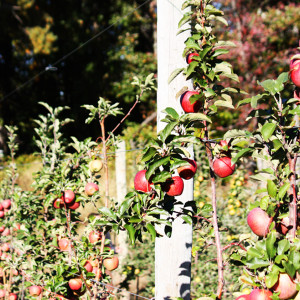Boston’s Independent Film Festival Is Taking the ‘IFF’ Name Battle to Court
Confusion between the 'independent' and 'international' events is apparently great enough to send filmmakers to the wrong festival.

Photo via iStock.com/maksicfoto
There can only be one “IFF” in Boston, a local film festival says. And now the Independent Film Festival Boston is taking that battle to federal court.
The nonprofit festival, which goes by the shorthand IFFBoston, is taking aim at another event celebrating cinema in the city: the Boston International Film Festival, which, according to a suit filed in U.S. District Court, has been branding itself with the oddly similar moniker “Boston IFF” since last year—making the switch in its URL, Facebook page, and Twitter handle.
“It’s caused a lot of confusion, both with the public and with the filmmakers,” says Brian Tamm, IFFBoston’s executive director. “So we just want to clarify the difference between our two festivals.”
If the case moves forward, IFFBoston lawyers are asking the court to force Boston IFF to commence a campaign to clear things up by email, mail, and in advertisements, “to ensure that consumers are not further misled by BI Film Festival’s claims,” according to the complaint. It also seeks damages.
But for his part, Tamm says he never wanted this to go through the legal system, and still doesn’t. He says before filing the suit, he spoke with leadership at the International Film Festival, and has even sent the festival a cease-and-desist order. But nothing’s changed, so he says he’s left with no choice.
“I really didn’t want to go to all this trouble,” Tamm says.
The Boston International Film Festival did not respond to several requests for comment.
The international fest is no newcomer to the cinema-celebrating arena. In fact, both it and IFFBoston launched the same year, 2003.
The IFFBoston has been a bigger affair, with industry panelists, celebrity appearances, and high-profile screenings at the Brattle, Somerville, and Coolidge Corner theaters; the international event is much smaller and scrappier, and, as the name suggests, has been more focused on highlighting international artists. Since their founding, the two festivals appeared to have coexisted peacefully.
Things started to change in 2009, the suit alleges, when the international festival began scheduling its programming a few days apart from IFFBoston’s.
Then, the suit alleges, the international festival switched the name of its website from bifilmfestival.com to bostoniff.org and changed up its social media presence to reflect the “IFF” brand.
“We started to get a number of filmmakers calling us confused, saying, ‘I got contacted by them and thought they were you,’” Tamm says. “I would hate for somebody to go to one festival or the other based on a misunderstanding.”
‘A Tremendous Disappointment’
For the makers of “Food Fight,” though, a local documentary about the upheaval at Market Basket grocery stores in 2014, their experience this year with the Boston IFF felt like more than just a misunderstanding. They felt duped, says producer Melissa Paly.
“I thought I was entering the independent film festival when I submitted, and I was very surprised to find out that there was another film festival to which I was actually submitting, which had an almost identical name,” Paly says. She is not part of IFFBoston’s suit, and says she does not plan to sue.
When she learned of her mistake, Paly says, she decided to let the screenings at the festival—which would be its premiere—go forward. What followed was “seriously underwhelming,” she says.
“There wasn’t a single industry rep there. There was no opportunity to pitch the film to anybody with any industry connections, and that was a tremendous disappointment,” she says. “They continued to say throughout the programming period that they would let people know about who was going to be there.” But it eventually became clear, she says, “There was nobody coming.”
It was one of many promises from the festival’s organizer, a Boston filmmaker named Patrick Jerome, that fell through, Paly says.
She says filmmakers were also promised the festival would include an event featuring a panel of expert distributors. But when the day of the event in Boston came, she says, there was but one presenter on the panel: Patrick Jerome.
Boston made several attempts to reach Jerome for comment, but was unsuccessful.
The “Food Fight” movie itself played twice at the festival, she says: once at the Revere Hotel (“which felt like a proper place for a premier”), and then again at second-floor union hall on West Street (“which was anything but a legit venue,” she says).
Even though scores of supporters came out to see the movie on the second night—which also happened to be the weekend of the Boston Marathon—the screening was delayed an hour due to technical difficulties, she says, and after that, the crowd of viewers seated on folding chairs had to wait through a 30-minute experimental film before the documentary played.
“It ended up being a really great reception to the film, but it was not the screening that we had hoped,” she says. “It was a mistake for us.”
When it was all over, she says, “Food Fight” won an award.
“It was a ‘Certificate of Achievement,’ the sort of thing you’d buy at a convenience store or get when you pass your Driver’s Ed class,” she says. “It was sort of a capstone to farce.”


